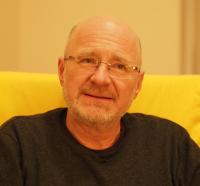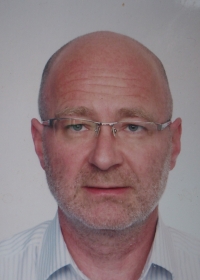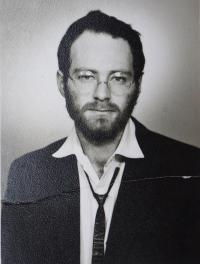I was lucky to meet great teachers and a life role models

Download image
Martin Konečný was born on 26 June, 1964 in Pilsen. Both his parents were connected to the J. K. Tyl theatre; the mother was a dramaturge and his father an actor. When he was five years old, his mother left with him and two years younger sister to Prague, where she worked in the theatre Za branou. During studies at the Štěpánská gymnasium the witness converted and got baptised. Following graduation he studied in Litoměřice seminar, but was disgusted with former circumstances so much he preliminarily finished the studies. Despite problems he got to study medicine in 1986, and began actively interested in politics. Already during university studies he got married for the first time. He participated in November students´march from Albertov to the National Avenue. After suffering a shock from the police engagement he recovered fast and on the second day he activated resistance along with his colleague students with maximum efforts. In 1992 he graduated and started working in oncology department in his native Pilsen. He disliked a mechanical approach towards oncology patients and later decided to move to psychiatry. In 2007 he won a position of a primary at the Psychiatric hospital Ostrov. He enjoyed working there but encountered numerous issues on part of the hospital management and his colleagues, so finally left Ostrov too. After a while he got a job at a regional hospital in Příbram, where he has worked until now.


